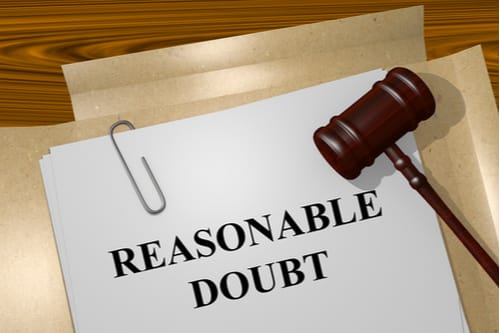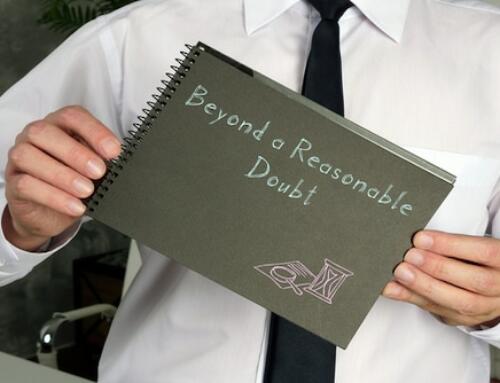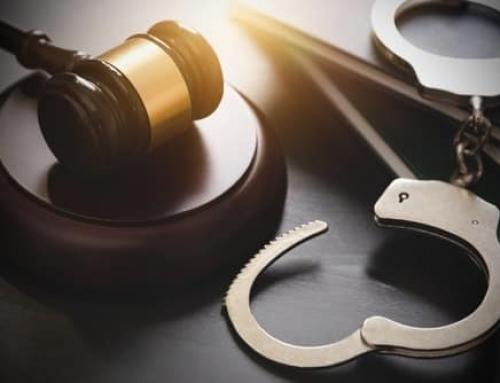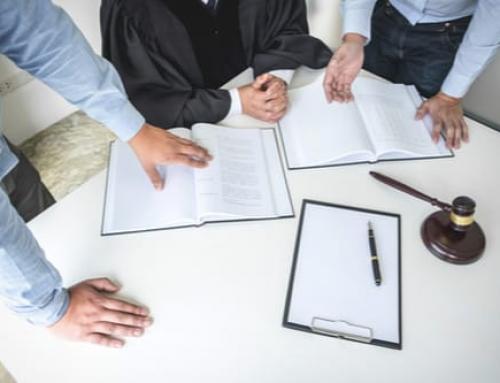One of the most important aspects of criminal law is the burden of proof. In all misdemeanor and felony cases, the burden of proof rests with the government. This means that it is up to prosecutors to prove that the defendant is guilty. If prosecutors cannot do this—if they cannot meet their burden of proof—then the defendant is entitled to walk free.
To meet their burden, prosecutors must prove the defendant’s guilt beyond a “reasonable doubt.” While this is a high burden, it does not require absolute certainty. So, what does it require? Philadelphia criminal defense lawyer Brian Fishman explains:
The Prosecution’s Burden of Proof and the Defendant’s Presumption of Innocence
The prosecution’s burden of proof and the defendant’s presumption of innocence are inseparably intertwined. As stated in the Pennsylvania Suggested Standard Jury Instructions (Suggested Instruction 7.01):
“A fundamental principle of our system of criminal law is that the defendant is presumed to be innocent. . . . [T]he defendant is presumed innocent throughout the trial and unless and until you conclude, based on careful and impartial consideration of the evidence, that the Commonwealth has proven [him] [her] guilty beyond a reasonable doubt.”
As Suggested Instruction 7.01 goes on to state, “It is not the defendant’s burden to prove that [he] [she] is not guilty.” This is critical. Technically, a defendant in a criminal case does not have to present a defense in order to avoid a conviction. If the prosecution fails to present adequate evidence of guilt in court, then the jury must necessarily return a verdict of “not guilty.”
Of course, many prosecutors are very good at their jobs, and juries don’t always make the right decisions. As a result, regardless of the facts at hand, criminal defendants can never take the outcome of trial for granted.
What Constitutes a “Reasonable Doubt”?
The prosecution has the burden of proving a defendant’s guilt beyond a reasonable doubt; and, as we said above, this does not require absolute certainty. So, what constitutes a “reasonable doubt”?
Suggested Instruction 7.01 is informative here as well. It instructs jurors that they, “may not find the defendant guilty based on a mere suspicion of guilt,” and defines a “reasonable doubt” as:
“[A] doubt that would cause a reasonably careful and sensible person to hesitate before acting upon a matter of importance in his or her own affairs. [It] must fairly arise out of the evidence that was presented or out of the lack of evidence presented with respect to some element of the crime. A reasonable doubt must be a real doubt; it may not be an imagined one, nor may it be a doubt manufactured to avoid carrying out an unpleasant duty.”
Reasonable doubt is commonly discussed in terms of percentage. While there isn’t a precise number (and while prosecutors do not need to prove a defendant’s guilt “to a mathematical certainty”), it is generally understood to be in the range of 99 percent. In other words, if there is even a slight (but realistic) chance that a defendant is innocent, then the defendant cannot be found guilty under Pennsylvania law.
How Can a Defendant Establish “Reasonable Doubt”?
You have been charged with a crime. Your freedom, your finances, and your future could all be on the line. So, how do you establish “reasonable doubt” and avoid a conviction in court?
There are several possibilities. Defendants also have the opportunity to raise the issue of “reasonable doubt” at multiple stages of trial.
Filing a Motion for a Directed Verdict
Since the prosecution has the burden of proof, the prosecution always presents its case first at trial. When the prosecution rests, the defendant can file what is known as a motion for directed verdict. Essentially, this is a request for the judge to take the case out of the jury’s hands and find—as a matter of law—that the prosecution has failed to meet its burden of proof.
If the judge denies a motion for directed verdict, this does not mean the defendant is guilty. Rather, it means the judge hasn’t yet made up his or her mind. At this point, the defendant will need to present evidence that raises issues with the prosecution’s case.
Presenting Evidence in Court
Preventing the prosecution from meeting its burden of proof does not require proof of innocence—although proving innocence can be a good defense strategy in appropriate cases. Instead, it requires the defendant to either: (i) expose shortcomings in the prosecution’s case, or (ii) discredit the prosecution’s evidence. With this in mind, some possible ways to establish “reasonable doubt” include:
- Demonstrating that the prosecution has not adequately addressed all of the elements of the alleged crime (as established by Pennsylvania law);
- Presenting evidence that contradicts the prosecution’s evidence on one or more elements of the crime;
- Challenging the authenticity or reliability of the government’s evidence (i.e., questioning the source of a document or the calibration of a testing device);
- Challenging the credibility of the government’s witnesses (i.e., by showing that they have criminal records, have lied in the past, or have a personal interest in the outcome of the case); and,
- Challenging the admissibility of the prosecution’s evidence based on violations of the defendant’s constitutional rights (in which case the jury must disregard the evidence during its deliberations).
These are just examples. When facing criminal prosecution in Pennsylvania, it is imperative to examine all potential defenses and develop a cohesive defense strategy focused on the unique factual and legal issues involved in your case. This requires intimate knowledge of the law; and, as a result, it is strongly in your best interests to have an experienced defense lawyer on your side.
Request a Consultation with Philadelphia Defense Lawyer Brian Fishman
If you are facing a criminal charge in Pennsylvania and would like to know more about the ways you can fight your case in court, we encourage you to contact us promptly. Call 267-758-2228 or send us a message online to request a consultation with Philadelphia defense lawyer Brian Fishman.






